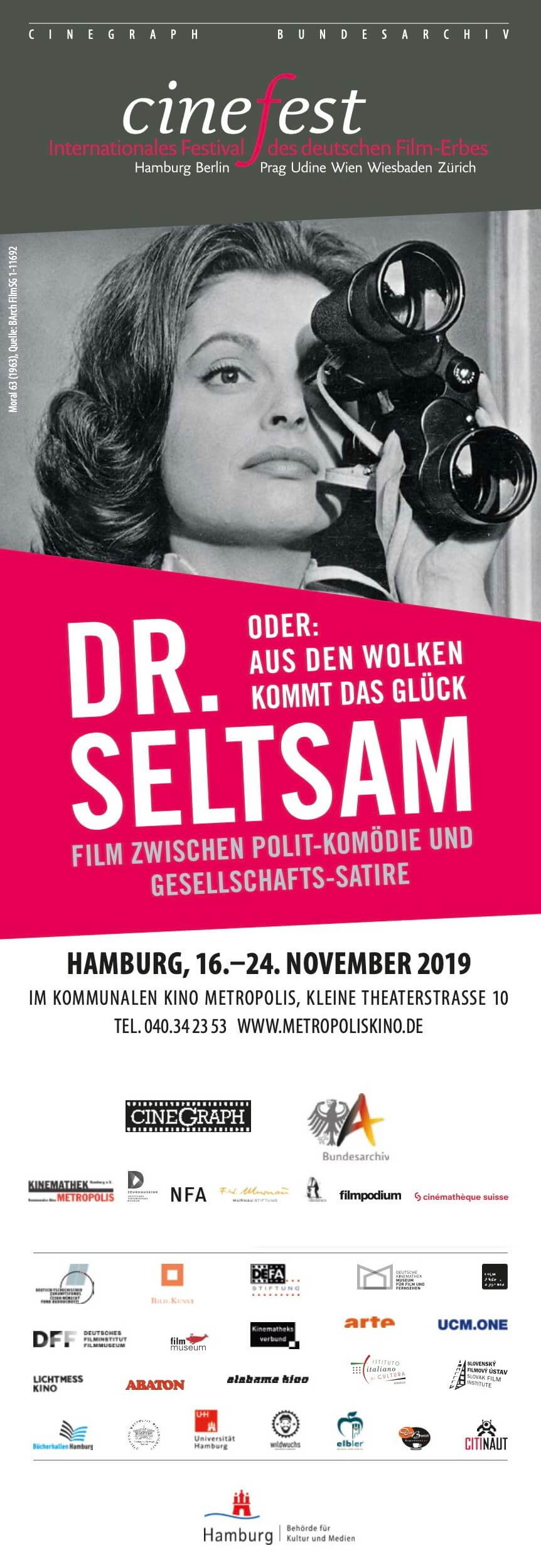Today, this year’s cinefest – XVI International Festival of German Film Heritage (German: cinefest – XVI. Internationales Festival des deutschen Film-Erbes), which will take place from 16 to 24 November in Hamburg, will be ceremoniously opened at the Metropolis Cinema (Kleine Theaterstr. 10). UCM.ONE will be a partner for the first time this year. In the future, cinefest and UCM.ONE will regularly publish selected film pearls that play a role in the festival.
The first film to be published as part of this new cooperation will be Gerhard Klingenberg‘s film “Was wäre, wenn…” in spring 2020.
This year’s festival theme is “Dr. Seltsam oder: Aus den Wolken kommt das Glück – Film zwischen Politik-Komödie und Gesellschafts-Satire” (English translation: “Dr. Strange or: From the clouds comes happiness – film between political comedy and social satire“). There has always been laughter in the cinema. But when the fun ends and the seriousness begins, filmmakers and audiences always sounded out anew. The fact that Kurt Tucholsky‘s question “What may satire?” in the history of film cannot be answered in general terms with “Everything”, but that the answer was always dependent on the historical context, especially the respective power structures, is shown by cinefest, which explores the range of this critical and entertaining genre with films from 1924 to 2015.
The festival opens this year with the award of the “Reinhold Schünzel Prize” to Giovanni Spagnoletti for “many years of service to the care, preservation and dissemination of the German film heritage” and the subsequent opening film “Wir Kellerkinder” (1960) by Jochen Wiedermann with Wolfgang Neuss, Wolfgang Gruner, Karin Baal, Jo Herbst and Ingrid van Bergen.
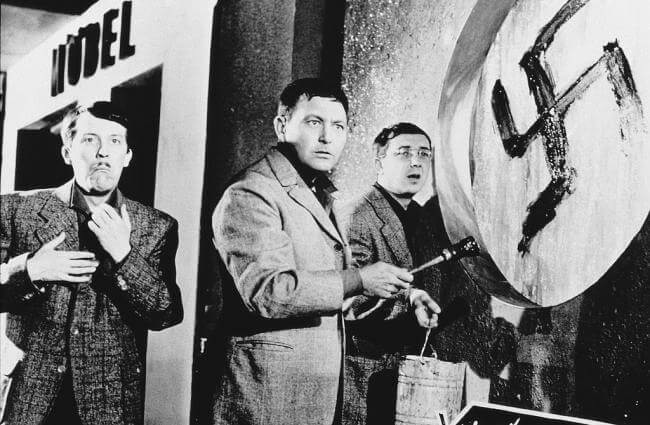
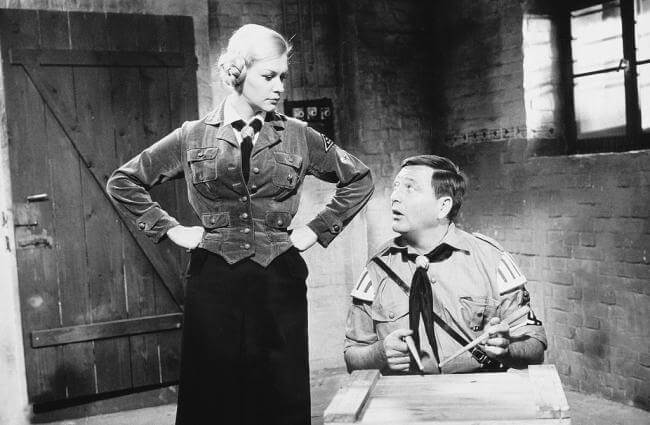
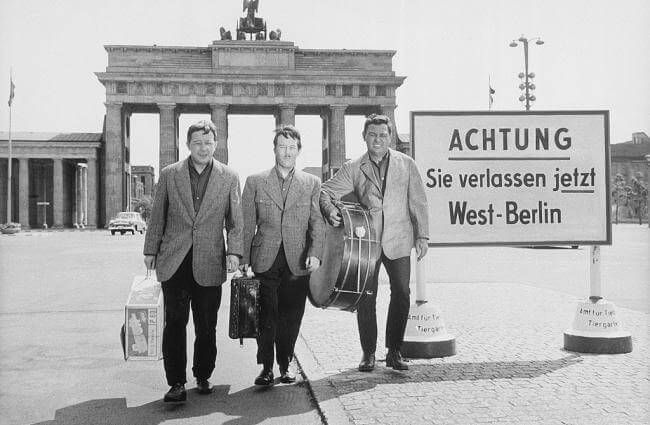
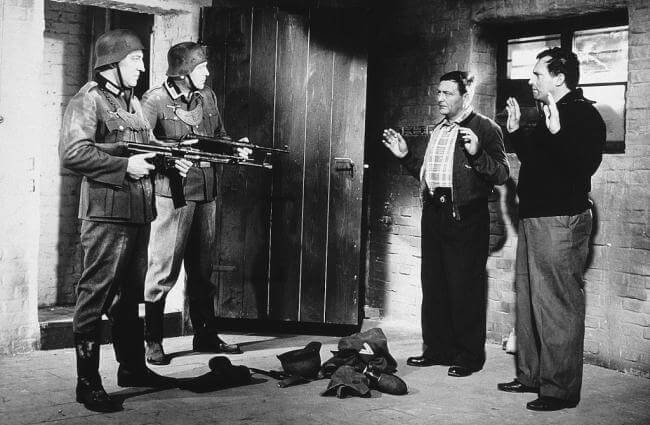
Synopsis: From cellar life to being a loony bin – two states of life that mean two worlds to Macke Prinz (Neuss). The film satire based on a script by Wolfgang Neuss deals with the “unresolved past” of the Germans from the “non-conformist” point of view of a cellar child and manages to be entertaining, but also profound.
The organizers:
CineGraph – Hamburgisches Centrum für Filmforschung e.V. (English translation: Hamburg Centre for Film Research) – a non-profit organisation founded in 1989 as a result of the editing of the encyclopaedia of the same name – communicates the results of its scientific and cultural-historical work to a public interested in film through congresses, retrospectives, seminars, exhibitions and publications and has established itself internationally as a specialist institution through its publications and events.
Since 1990, the Bundesarchiv-Filmarchiv based Berlin has been the official co-organizer of the CineGraph Congresses on Film History. The many years of successful cooperation between the archive and the filmhistorisches Centrum within the framework of the congresses have strengthened both partners in their efforts to jointly dedicate a new series of events to the German film heritage.
The Bundesarchiv-Filmarchiv and CineGraph are members of the Kinematheksverbund.
Previous topics at cinefest:
- 2004 – The German film comedy before 1945 (with a focus on Jewish comedians before and after 1933)
- 2005 – Film Europe Babylon. Multilingual versions of the 1930s in Europe
- 2006 – Cast off! Maritime Cinema in Germany and Europe 1912-1957
- 2007 – Film in the heart of Europe. German-Czech film relations in the 20th century.
- 2008 – All in pieces !…? Film Production and Propaganda in Europe 1940-1950
- 2009 – Shadow of war. Innovation and Tradition in European Cinema 1940-1950
- 2010 – cinema trans-alpino. German-Italian film relations
- 2011 – Europe’s prairies and canyons. Western between Siberia and Atlantic Ocean
- 2012 – Cold War and Film Spring. The cinema of the early 1960s
- 2013 – Prohibited! – Film censorship in Europe
- 2014 – Against the public! – New ways in documentaries
- 2015 – People in the hotel. Filmic encounters in limited spaces
- 2016 – Broken Language – Film Authors and Writers of Exile
- 2017 – Between Revolution and Restoration – Culture and Politics 1789-1848 in the Mirror of Film
- 2018 – Master of Weimar Cinema – Joe May and the Wandering Picture
The Darling Berlin film “Die Endlose Nacht” (1963) by Will Tremper with Hannelore Elsner, Harald Leipnitz and Karin Hübner, among others, was shown at the cinefest in 2012, which was dedicated to the theme “Cold War and Film Spring – The Cinema of the Early 1960s”.
This year, the film “Warum die UFOs unseren Salat klauen” (1980) by Hansjürgen Pohland with Thomas Piper, Hildegard Knef, Ursela Monn, Curd Jürgens, Günter Pfitzmann and Pavla Ustinov, among others, is on the programme on Sunday, 17 November 2019 (2:30 pm, Cinema Metropolis).


